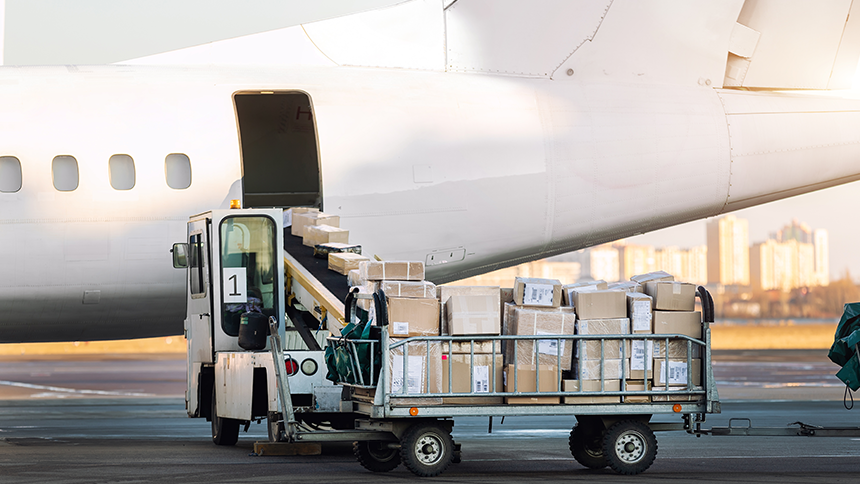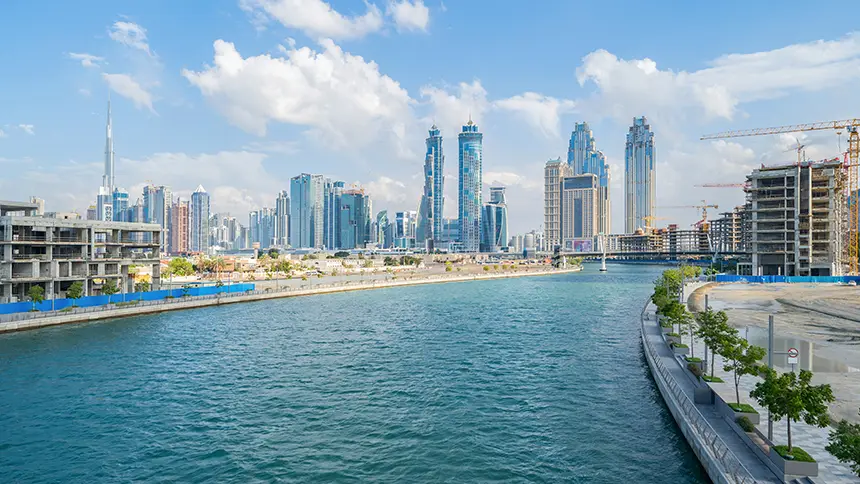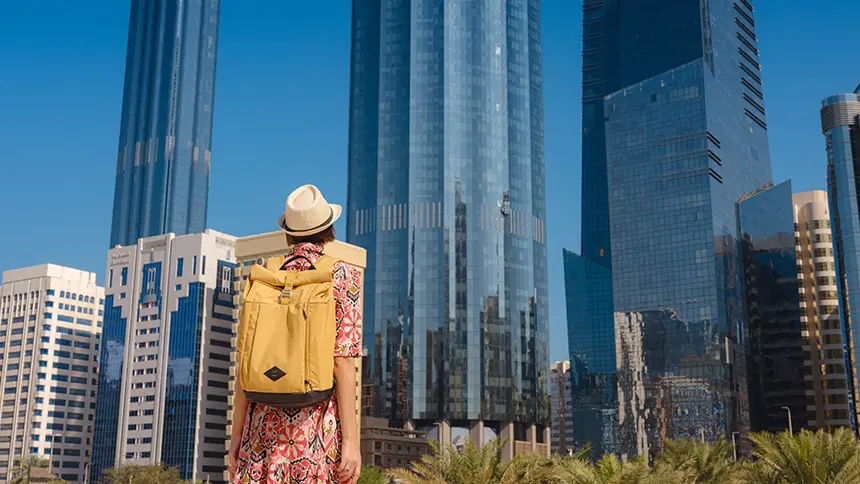Dubai is located at the crossroads of Europe, Asia, and Africa, giving it a very strategic position for global trade. Its location near major shipping routes allows goods to move quickly between continents, making it an important hub for international business. The city has developed modern ports, airports, and road networks that help ships, planes, and trucks transport products efficiently. Every year, millions of tons of cargo pass through these facilities, connecting manufacturers, traders, and consumers worldwide. Dubai also serves as a center for re-exports, where goods from one country are shipped here and then sent to other countries. Many large companies set up regional offices and warehouses here because of easy access to markets and trade-friendly policies. Its role in global commerce has grown steadily, making it one of the key trade and logistics centers in the world.
Strategic Geographic Advantage
Located between Europe, Asia, and Africa, the city has a very important position for international trade. Its central location allows businesses to reach many countries quickly and easily. Because of this, it acts as a natural gateway for global commerce, helping goods move from one continent to another without delays. The city is very close to major shipping routes, including the routes through the Arabian Gulf, which are used by thousands of cargo ships every year. These routes connect it to important markets in Europe, Asia, and Africa, making trade faster and more efficient. Its location also makes it easier for companies to import products from one region and export them to another. Many global businesses choose to set up warehouses and distribution centers here because goods can be transported smoothly by sea, air, or road. This geographic advantage has helped the city become one of the top centers for trade in the world.
World-Class Infrastructure
The city has developed world-class infrastructure that makes trade and logistics very efficient. Its ports, like Jebel Ali Port, handle millions of tons of cargo every year and are among the busiest in the world. The airports, including Dubai International Airport and Al Maktoum International Airport, serve as major hubs for air cargo, connecting goods to many countries quickly. Modern roads and highways link ports, airports, and industrial areas, making transport smooth and fast. Advanced warehouses and storage facilities help businesses store and distribute products efficiently. These infrastructure facilities have made the city a top destination for global trade and logistics companies, supporting fast and reliable movement of goods.
Ports
Jebel Ali Port is one of the largest and busiest ports in the world. It handles millions of containers every year and connects the city to countries in Asia, Europe, and Africa. The port has modern cranes, storage areas, and facilities that help ships load and unload goods quickly. Khalifa Port is another major port, known for its advanced technology and deep water, which allows very large ships to dock safely. It also has efficient cargo handling systems and warehouses. Both ports play a very important role in international trade, helping businesses import and export goods smoothly and supporting the city’s position as a global trade hub.
Air Cargo Hubs
Dubai International Airport is one of the busiest airports in the world for both passengers and cargo. It handles millions of tons of goods every year, including electronics, clothes, and perishable items. The airport has advanced cargo terminals and fast customs clearance, which helps businesses move products quickly to other countries. Al Maktoum International Airport is a newer airport designed to handle very large amounts of cargo and big airplanes. It has huge warehouses, cold storage for food, and modern facilities for safe and fast handling of goods. Together, these airports make the city an important air cargo hub, connecting it to major markets in Asia, Europe, and Africa and supporting international trade efficiently.
Free Zones and Business-Friendly Policies
Jebel Ali Free Zone (JAFZA) and other free zones are special areas where businesses can operate with many advantages. Companies in these zones can own 100% of their business without needing a local partner, which is very attractive for international investors. They also benefit from tax incentives, such as no corporate or personal taxes for many years, making it easier to save money and grow. Import and export processes are simple and fast in these zones, with fewer rules and quicker customs clearance, which helps goods move smoothly. Free zones have modern warehouses, offices, and logistics facilities to support different types of businesses. Many global companies choose to set up factories, warehouses, and regional offices here because it makes trade easier and faster. These business-friendly policies and free zones have helped the city become one of the top centers for international trade and logistics in the world.
Advanced Logistics and Supply Chain Facilities
The city has advanced logistics and supply chain facilities that make trade fast and reliable. Modern warehousing and distribution centers store millions of products safely before they are sent to other countries. These centers are equipped with technology like automated storage systems and tracking tools that help businesses manage goods efficiently. Technology-driven logistics solutions, such as smart inventory systems and digital tracking, allow companies to know exactly where their products are at any time. This helps reduce delays and mistakes in shipping. The efficient handling of goods also supports re-exports, meaning products imported from one country can be quickly sent to other countries without extra delay. Many global companies rely on these facilities to manage their trade smoothly. With such advanced logistics and supply chain systems, the city has become one of the most important hubs for international trade and distribution in the world.
Government Support and Trade Facilitation
The government provides strong support to make trade and logistics easier and faster. Digital platforms and online systems allow businesses to complete customs procedures quickly without long delays. Simplified import and export rules help companies move goods smoothly across borders. Policies are designed to attract multinational companies to set up offices, warehouses, and distribution centers in the city. Many government initiatives focus on improving infrastructure, technology, and logistics services to support international trade. Trade agreements with other countries also make it easier to import and export products. Regular updates and clear guidelines help businesses follow the rules without confusion. These measures make the city a reliable and efficient place for global commerce. Companies can trust that goods will move safely and on time, which strengthens its role as a key hub for trade, supply chains, and international business.
Dubai as a Global Trade Hub
The city has grown into one of the most important global trade hubs. It connects manufacturers, traders, and consumers from all over the world. Key industries such as electronics, textiles, food, and machinery are traded in large quantities. Many goods are imported from one country and re-exported to others, making it a center for international commerce. The ports, airports, and free zones make it easy for businesses to store, manage, and move products quickly. Many global companies set up regional offices, warehouses, and distribution centers here because of the efficient transport, technology, and business-friendly policies. Its central location also allows fast access to markets in Europe, Asia, and Africa. The city plays a major role in global supply chains and international trade, helping businesses reach customers worldwide. These advantages have made it a top destination for trade and logistics companies.
Conclusion
The city’s strategic location, world-class infrastructure, and advanced logistics have made it a key player in global trade. Ports, airports, and free zones help goods move quickly and efficiently to countries around the world. Technology-driven solutions and government support make business easier and faster. Many international companies rely on its trade and supply chain facilities to reach customers across continents. Because of these advantages, it has become one of the most important trade and logistics hubs in the world. Its role in connecting businesses and markets continues to grow, making it a center for global commerce today and in the future.


